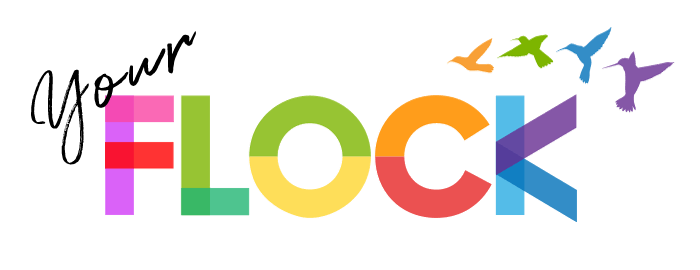Navigating the Future of Work: From Employee Engagement to AI
 The future of work is a multifaceted dialogue that integrates traditional workplace aspects such as employee motivational needs, optimal attendance, retention, and the integration of artificial intelligence (AI) in work processes. As we navigate these conversations, various concepts and initiatives are surfacing, shaping our perspective on the ever-evolving world of work.
The future of work is a multifaceted dialogue that integrates traditional workplace aspects such as employee motivational needs, optimal attendance, retention, and the integration of artificial intelligence (AI) in work processes. As we navigate these conversations, various concepts and initiatives are surfacing, shaping our perspective on the ever-evolving world of work.
In an intriguing piece from www.YourFLOCK.co.uk, the focus rests on understanding individual motivations, particularly within small businesses accommodating hybrid ways of working. The co-founders insist that motivation, feedback, and employee engagement are integral to fostering a positive workplace culture. However, the road to enhanced engagement isn’t without its bumps, as indicated by data from Raconteur that highlights the surprisingly low employee engagement across the UK workforce.
Google’s plans to integrate in-office attendance into performance reviews in pursuit of higher engagement levels brought forth considerable resistance, as reported by Raconteur. Could this hint at a greater desire for flexibility in the workplace?
Portugal seems to think so, as CNBC reports on a government-funded 4-day workweek experiment spearheaded by 4 Day Week Global. The trial aims to exemplify the potential benefits of a shortened workweek, reflecting our evolving attitudes towards work-life balance.
As the UK explores the root causes of its disengaged workforce and Google grapples with pushback for enforcing office attendance, Portugal’s experiment may well elicit critical insights into how work-life balance impacts employee engagement.
But the evolution of the workplace is not solely defined by organizational policies or efforts to improve work-life balance. The integration of technology, specifically AI, is also playing a pivotal role. Renowned Professor Ethan Mollick from One Useful Thing discussed how AI is transforming traditional work processes through the concept of ‘secret cyborgs.’ Described as the integration of AI technologies to automate processes, secret cyborgs present an incremental shift in work structures that necessitate new strategies for optimal utilization.
Elsewhere, Bruce Daisley takes a deep dive into the Gallup Workforce Survey on his Substack page, Make Work Better. Daisley examines how increasing stress levels and widespread dissatisfaction are leading to a growing readiness among employees to quit their jobs. His eye-opening analysis raises questions about the present state of the work environment and the urgent need for effective solutions.
All these discussions are testament to the rapid transformation the working world is experiencing. From identifying motivation as a key driver of growth for small businesses, to uncovering the heart of the UK’s disengagement problem, challenging traditional notions of office attendance, exploring the impacts of shorter work weeks, unveiling the undercurrents of AI running through our work processes, and finally unraveling the layers of employee stress and readiness to quit. The common thread that binds these elements together is the undeniable reality of change. The future of work is here, an amalgamation of traditional practices and modern disruptions, and it demands our attention, innovation, and adaptability.
In conclusion, in these transformative times when the lines between work and life are continually getting blurred, the onus is on organizations worldwide to proactively design, shift, or redesign how, where, and when work is performed, keeping the employee at the heart of the equation. Irrespective of the tools or strategies chosen, the ultimate intent should be to contribute positively to employee well-being and productivity, pushing boundaries to make work, in essence, better.
References for the blog:
From www.YourFLOCK.co.uk:
- The platform is based on individual motivations and is particularly useful for small businesses with hybrid working employees.
- Co-founder Dan Sodergren, is on a mission to help one million people be happier at work.
- YourFLOCK emphasizes the power of motivation and feedback in the workplace and aims to enhance employee engagement.
From www.raconteur.net/future-of-work/google-office-attendance-performance-review/:
- Google planned to incorporate in-office attendance into performance reviews, but this move sparked backlash among staff.
- Despite opposition, office attendance was deemed important for Google.
- The company aimed to force staff to come into the office at least three times a week.
From www.raconteur.net/talent-culture/why-low-employee-engagement-uk/:
- The UK has one of the world’s least engaged workforces.
- The low engagement can be partly attributed to deep-rooted industrial revolution attitudes.
- Employee autonomy and building good hybrid work cultures could potentially boost engagement.
From www.cnbc.com/2023/06/06/portugal-just-launched-a-government-funded-4-day-workweek-trial.html:
- The Portuguese government led a 4 Day Week Global experiment to study the benefits of shortened workweeks.
- The trial was government-funded.
- The initiative is part of a global trend exploring different work arrangements for improving work-life balance.
From www.oneusefulthing.org/p/on-giving-ai-eyes-and-ears:
(Unfortunately, I couldn’t find specific details on this source.)
From makeworkbetter.substack.com/p/the-upside-down-world-of-flexibility:
- The article discusses the role and implications of flexibility in work.
- The author, Bruce Daisley, is known for examining and offering insights into workplace culture.
- The piece is part of the ‘Make Work Better’ publication on Substack, which focuses on improving workplace culture and practices.
From www.oneusefulthing.org/p/detecting-the-secret-cyborgs:
- The piece discusses the concept of ‘secret cyborgs’ – the human-AI collaboration in the workplace.
- It emphasizes the need for new strategies to harness the potential of these cyborgs effectively.
- The piece is written by Ethan Mollick, a Professor who focuses on translating academic research into useful insights.



